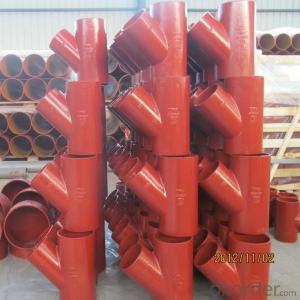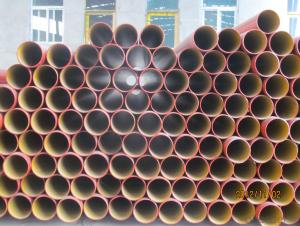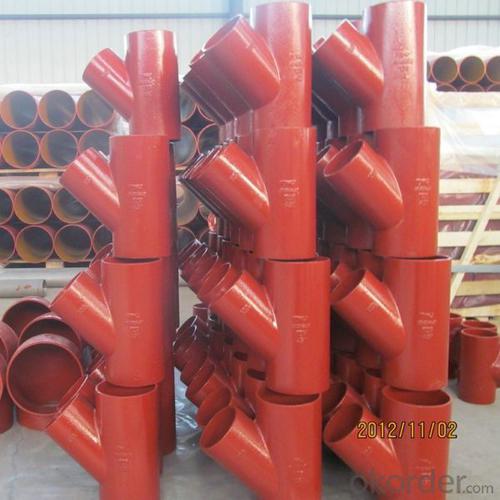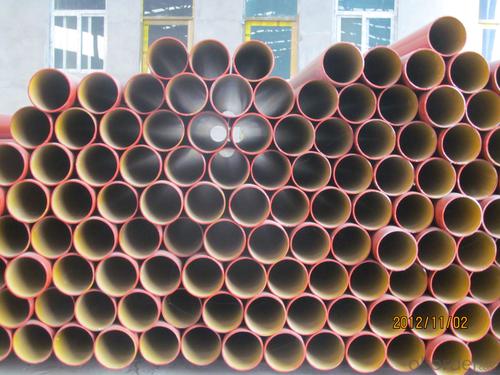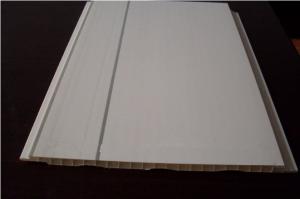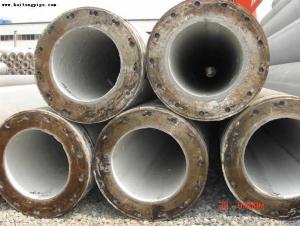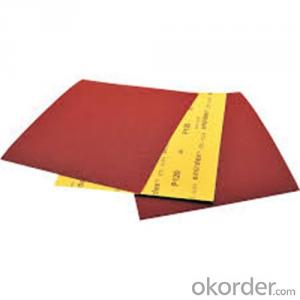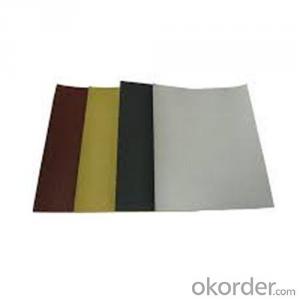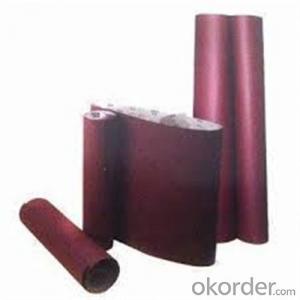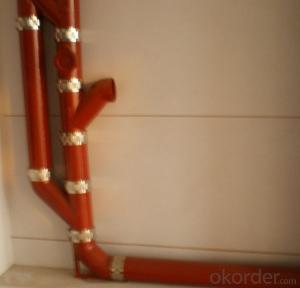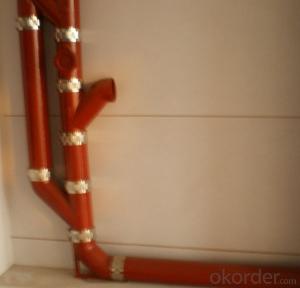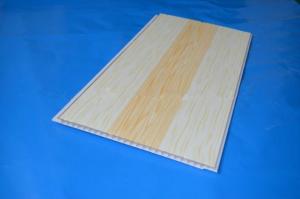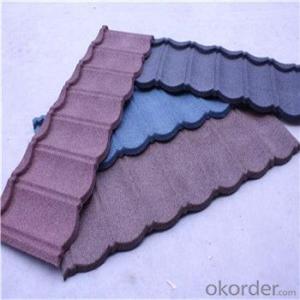EN877 - CAST IRON PIPE AN FITTINGS- DRAINAGE
- Loading Port:
- China Main Port
- Payment Terms:
- TT OR LC
- Min Order Qty:
- -
- Supply Capability:
- -
OKorder Service Pledge
OKorder Financial Service
You Might Also Like
Made from 100% recyclable materials, CMAX epoxy cast iron pipe systems are not only environmental friendly, but also satisfy many properties necessary to withstand the aggressive conditions both internal and external of the pipes and fittings: these properties include its excellent resistance to abrasion, corrosion, impact and fire. CMAX also has low noise transmission compared to common UPVC drainage pipe systems. CMAX is designed as long lasting building materials.
Standard:
CMAX epoxy cast iron pipe systems with nominal size between 40-300mm comply with BS EN 877.BS EN 877 guarantees the quality of the materials, dimensions and tolerances, mechanical properties(like water pressure, tensile strength and brinell hardness) appearance, and the standard coating for the epoxy cast iron pipes, fittings and couplings.
Strength:
Iron is well known for its strength and abrasion resistance. The shape and impact strength of CMAX products are unchanged under exposure of sunlight and weathering, while UPVC and PVC pipes would soften, deform and become brittle under intense temperature change.
Quiet:
CMAX’s sturdy and dense properties reduce pipe vibration a silent drainage system.Studies had proven iron is the quietest material out of all other common drainage system.
Non-Toxic and Non-Combustile:
No toxic gas will be emitted from CMAX in the event of fire. Iron is also non-combustile,so epoxy cast iron pipes and fittings are recoverable after fire.
Anti-Corrosive:
All CMAX epoxy cast iron pipes and fittings are internally and externally finished with corrosive resistant epoxy coating to prevent fouling and corrosion. The epoxy on CMAX epoxy cast iron pipes and fittings provides an excellent exterior under humid and tropical conditions.
Coupling:
Lightweight couplings are specially engineered to guarantee a strong, quick and easy connection between CMAX pipes and fittings. Made from stainless steel with rubber gaskets, the coupling match pipe and fittings non-corrosive properties.
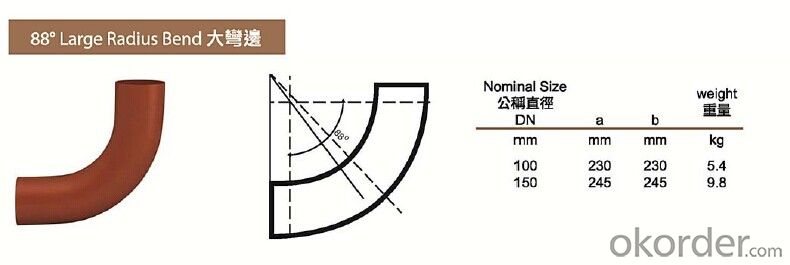
- Q: America is flooded with real estate agents. Im just curious as to what you think it takes to be a successful one? Is it more important to have a dynamic personality or be a hard worker? Does it matter who you know? or could you move to a new town with hard work be a success in the industry? Is it persistence that pays off or is it long hours?
- Everything matters: who you know may get you a foot in the door. Dogged persistence will pay off in the end. Dynamic personality will attract clients to you, but you still have to follow thru and deliver the goods. Now, moving to another town is a big handicap, especially moving to another state, because you need to know your territory! You need to know your way around town (all the streets, landmarks, stores, schools, etc). You need to know the flavor and reputation of every neighborhood, each school, churches, community organizations and facilities, etc. It takes years to know a town. Moving to another state, you have to start from scratch with courses, licensing, etc. But the very most sucessful real estate agents have something far beyond all the minimums above. The develop some innovative way of attracting clients and getting referrals. Your ability to innovate marketing techniques that work for you, your personality and style, and your community set you apart from the others. BTW, there is another factor. Have a solid, secure income from another source. Why are so many successful businessmen's wives so successful in real estate? They've put kids through school and know the schools, teachers, PTA school board members. They know the people who count and can pass the word. They have excellent taste, know their way around everywhere, know how to evaluate a floor plan and how the space will live breathe for a family, they've moved and know the shortcuts/tips/tricks, they are accustomed to knowing working with people from a wide variety of backgrounds... In short, they know their town, its people, and the motivations of buyers and sellers. And they are not desperate for the income so they focus on what their clients' wants needs, not their own neediness.
- Q: Well for the past 3 years I have wanted to go into real-estate as a career. Im a senior this year and the time is coming near for me to get serious, im really excited. All my teachers, friends, and co-workers think it would be great for me. But a lot of my family, other then my mother think i will fail because its so slow right now. They think I'm just wasting my time, and will never be succesful. so here the question.1.How do I get them off my back, and just trust me when i say this is what i want to do?2.Is real-estate as bad as they say?I've always wanted to do this and think i'd be really good.please help!
- Greetings! I am a real estate broker and serve the Reno Nevada real estate market currently. Our home sale volume is down about 60% from where it was two years ago - which does make it tougher to earn as much money as over the last two years. I would suggest you set very achievable goals to define your success. This will allow you to do what you really want to do and give you a benchmark to communicate your success to your mother in positive terms. I don't know where you live and what the home prices are in your area, but perhaps, you should strive to sell 3-4 houses in your first year. If you have other income sources (as a senior), this may work for you. The average number of homes (sides)sold per year nationally was 8.4 in 2007. You may be able to achieve this in a 2 - 3 year time frame!
- Q: I am pursuing a career in real estate and I need someone to point me in the right direction on how to obtain these licenses also if there are tests are they hard? are there classes for these that I can take? also any pointers and tips would help, also I live in the Philadelphia area.
- First you have to find out the real estate course, licensing and continuing education requirements for PA. Then check out real estate courses in your area. Your local high school adult ed programs typically offer RE salesperson courses, and so do many community college continuing ed/adult ed programs. You need to know real estate law, real estate financing, ethics, etc, to obtain a license, and yes, the exams are typically very difficult. Also, you have to take additional coursework every year, take additional exams, and renew your license by proving you completed your continuing education requirements, passed any required exams, and pay a license renewal fee.
- Q: I have an A.S in Real Estate, Bachelors in Architecture, and plan on getting my masters in real estate development. Will being an architect, a real estate broker, and a building contractor at the same time give me an advantage to be a successful real estate developer??? What do you think?
- Beyond all the data knowledge that you need to be a real estate developer- is money. You need to be very good at raising money- and planning how to work around issues that come up. For instance the time from the very start of a project (planning it and finding the property) to the end (selling the buildings) can zoom from 5 to 10 years very easily. We don't know what the economy will be like in one year- much less ten years. We also don't know much about the building and zoning requirements will be in the future years. You will need to be constantly going back to your investors and telling them why you need more money- and why it will be a while before you can return anything to them. The Excavation of the site for the Empire State Building began on January 22, 1930 (I don't know when they got the permits or started raising money). They had no idea how long the great depression would last. It is said that it did not make a profit for the investors until 1950. So how good are you at talking people into investing huge sums of money?
- Q: Have money to open a small biz, or should I just buy some Real Estate?
- Depending on where you live, and how hot or cool the housing market is, I'd opt to purchase a house with as much down as you can muster, wait 6 months to a year, build up a little equity, then borrow on the house to put down on a small business. In an upswing, your house is making money, while you haven't put much of your own money into the business, and if you are in a downswing, you still own a house if the business tanks.
- Q: MLM has the following properties1. Multiple levels of experience, expertise, and management, like any business.2. Always promises good pay, even to beginners3. Selling something overpriced4. Commissions are split, and the people on top make more doing less5. Takes time to build your network/customer baseIs that an accurate description of MLM/pyramid scheme, and does real estate differ much from this business model?
- When I read about these scams that are multi level marketing, one flaw I see is you really are not trying to sell the product near as much as you are trying to sell new people on selling the product- because the product is unimportant. Most real estate sales people are selling property, most are not trying to talk you into selling property. I have been a real estate broker for 29 years and don't know anyone that has become wealthy from commission on real estate transactions. I do know people that have become wealthy from owning real estate. So I don't think real estate sales fits the definition of a pyramid scheme.
- Q: I am considering getting into real estate investing in select markets, but have neither the credit nor the money to get started. I would like any suggestions on how to overcome this issue from any experienced investors out there.
- Why invest in real estate now? We're just beginning a down cycle. Build cash. Do some homework. Wait for an opportunity.
- Q: how to proceed for a career in real estate consulting(appraisal,investment,brokerag... would an MBA degree helpI have degree in architecture
- An MBA may or may not be of benefit (although if you did, I'd get one in finance) - if you're going to do investment sales it would probably be of benefit, also, if you're going to work for a large firm, eg., CBRE, Jones Lang LaSalle, Sperry Van Ness, it may help get your foot in the door. Okay now - let me consult you - how 'about stop asking the same question.
- Q: I am finding it hard to track down a job that allows me to further my knowledge and skills and experience rather than keep me stuck in the mundane (minimum wage) jobs. Is getting a Real Estate license a poor idea, specially since the house market is so horrible? Or could I gain from it?Also, what is the best avenue for getting my license?Thank you.
- Whether you're about to get your real estate license, or you've begun your career as a new real estate agent, plans of action will help you to do the right things at the right times for a successful start of your real estate agent career. This is a business. Successful businesses do budgets and know their expenses, as well as projected revenues. Beginning a new career as a real estate agent is exciting and you'll want to hit the ground running. Your long term success depends on many things, but a good beginning real estate business plan is one of the most important. As per my experience, i will suggest you to use real estate software, FreedomSoft, It is a real estate property management software that gives a single login for entire real estate investing business.
- Q: So I have to do a paper on a job that I would have interest in pursuing after graduation and if you could answer my questions, that would be great! Especially any real estate agents that live in the South Carolina area.Give me a brief job description.What are some daily tasks that you must perform?What is your base salary and about how much it is with commission?Benefits?Opportunities for advancement? Education requirements?Skills needed?
- Real estate agent Required education: 60+ hours classroom work on fundamentals of Real Estate Required state licensure Compensation: 100% comission, no health/life/dental benefits Required Skills: Marketing both of self and real estate, writing/developing advertising, networking, ability to approach people independently to offer services of selling and or helping with a purchase, negotiation skills. Training is provided and paid for individually or via a larger cut of your gross sales.
Send your message to us
EN877 - CAST IRON PIPE AN FITTINGS- DRAINAGE
- Loading Port:
- China Main Port
- Payment Terms:
- TT OR LC
- Min Order Qty:
- -
- Supply Capability:
- -
OKorder Service Pledge
OKorder Financial Service
Similar products
Hot products
Hot Searches
Related keywords
